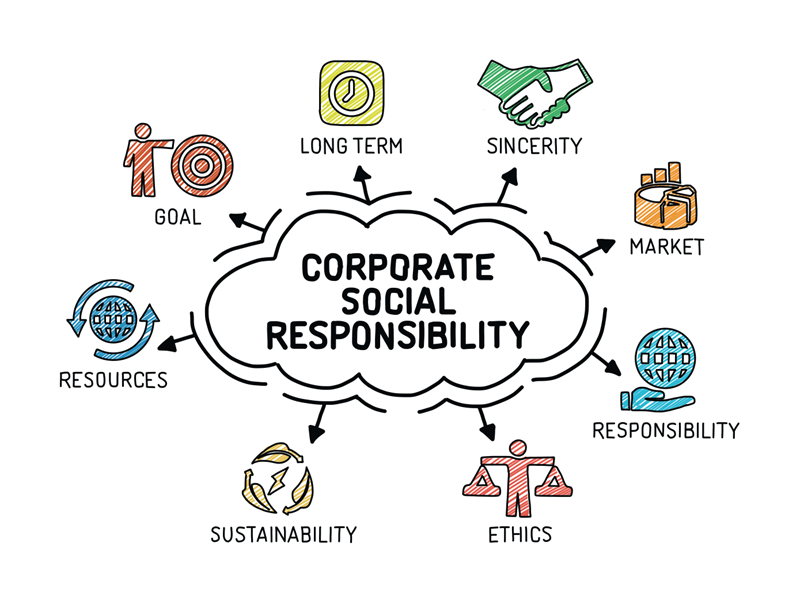By Mathew Garaviro Nyashanu
THROUGHOUT the business world, the conversation has been how can corporate leaders mainstream morals in doing business. The pursuit of self interest and profit is known to be the satisfaction in running the affairs of business. The business managers have a fiduciary responsibility to deliver profits to their shareholders.
Richard Posner argues that managers have an obligation to “keep to faith with shareholders.” His argument is that if a company issues equity under the implied assumption that its managers will maximize profits, and then managers decide to do other things, shareholders can reasonably argue that an implicit contract has been broken.
Adam Smith, the father of Capitalism and the author of Wealth of Nations, believed strongly in the value of self interest to society. He opened his book by remarking:
“How selfish soever man may be supposed, there are evidently some principles in his nature, which interest him in the fortunes of others, and render their happiness necessary to him, though he derives nothing from it, except the pleasure of seeing it,”
The hybrid engine of self interest and the deep feeling for the welfare of others serves a much wider role in the development of the self, the community and society.
Gary Becker had an argument, that corporations can not be motivated only by profits but rather there must be other set of goals they can pursue. The real test is how those corporations will survive in a competitive environment where some corporations are pursuing solely profit making for the delight of their shareholders.
At the World Economic Forum in January 2008, in Davos, Bill Gates quoted with the approval the opening discussion in Adam Smith’s outstanding 1759 book, The Theory of Moral Sentiments on the importance of altruism in human motivation. While this book is able to deal with motives like concern for others and the desire for recognition, Smith was skeptical not about the strength of altruism but about its scope and reach. Gates’s quest and appeal at Davos can be compared to Adam Smith. At one point Smith asks “ how a man of humanity in Europe” would respond to hearing “ that the great empire of China” …… was suddenly swallowed up by an earthquake.”

As he provided an answer to this Smith said if the man “was to lose his little finger tomorrow, he would not sleep, but; provided he never saw the people of China, he would snore with the most profound security over the ruin of a hundred million of his brethren, and the destruction of that immense multitude seems plainly an object not interesting to him than this paltry misfortune of his own.”
In discussing capitalism and the welfare of humanity, Bill Gates asserted:
“ The genius of capitalism lies in its ability to make self-interest serve the wider interest. The potential of a big financial return for innovation unleashes a broad set of talented people in pursuit of many different discoveries. This system driven by self interest is responsible for the great innovations that have improved the lives of billions of people. But to harness the power of capitalism so that it benefits everyone, we need to refine the System ”
It is evident that in many communities today, the church, traditional leadership and political leadership feel that those extracting minerals or doing business in certain areas are doing little to change the life and livelihood of people in those areas. If ever they are doing anything, it is felt that whatever they are doing is way little compared to what they are earning from extractive activities. Many of these advocates are pushing the legislature to legislate Corporate Social Responsibility (CSR). The role of Parliaments across different societies is to make laws for the good and just governance of society. Constitutions of various jurisdictions provide for the nature and extent of Parliament’s legislative authority. However, is it not morally correct that laws must be good in the eyes of a greater number?
Corporate Social Responsibility is a self regulating model that helps a business be socially accountable to itself, to its shareholders and the general public. When corporations practice Corporate Social Responsibility they can be conscious of the kind of impact they are having on all aspects of society which includes, the economy, the environment and social settings. Within the CSR framework, is an attempt to align private enterprises to the goal of sustainable global development by providing them with a more comprehensive set of working objectives than just profit alone. Here we take the perspective that for an organization to be sustainable, it must be financially secure, minimize its negative impact to the environment and it must be seen to be acting in conformity with social expectations.
What mischief is legislating Corporate Social Responsibility seeking to treat?
In the minds and eyes of many people, Capitalism is evil. It is even worse when one thinks of the “Excesses of Capitalism.” Those who are advocating for the legislation of Corporate Social Responsibility, in my view, seem to want to keep in check the “Excesses of Capitalism,” that the owners of capital are ruthless and have no regard to the plight of humankind and the environment. This opinion on its own can not be discounted because it has a high appeal to the ears of many.
Often we differ as human beings but I believe in differing we have a way of finding solutions to the problems of humankind. In my thinking, I believe we differ on the means with which society can benefit from the extractive activities of corporations and we do agree on the goal. What do I mean we agree on the goal? Central Government should collect enough taxes, levies and royalties in order to provide essential services to the ordinary people and for the repair of any damage to the environment.

I believe that mineral resources irrespective of where they are found in our country must benefit every citizen. Where then do we disagree? We disagree on any intention to legislate CSR. Legislating CSR is imposing an additional tax to corporations and this has a tendency of chasing capital. The country’s level of taxation is an important consideration made by any prospective investor.
How then do we move forward? The way to go would be to find out if these corporations are paying enough taxes, and royalties and what action they are taking to environmental damage. This can simply be achieved through governmental action, inspection and control. I do not believe this can be achieved through disturbing an already functional self-regulating business model such as CSR. I feel that we need to leave CSR to the hearts of corporation shareholders for them to decide on how they want to use extra dollars on their profits or how they want to relate with their customers and the general public.
CSR is an innovation on the part of corporations and any attempt to legislate or to disturb the manner in which it has always functioned and flourished would be to kill innovation and the spirit of innovation and creativity itself.
In summary, here we agree in principle on the goal and fundamentally differ on the means to reach to the goal.





1 Comment